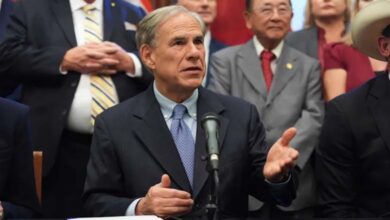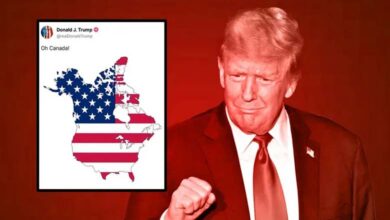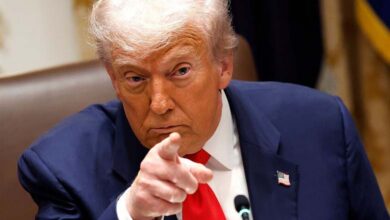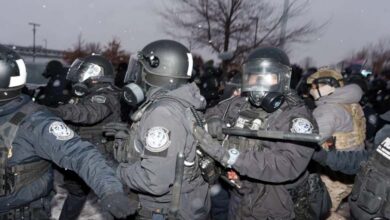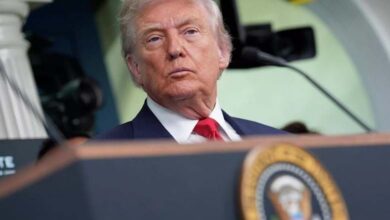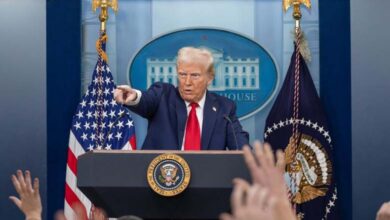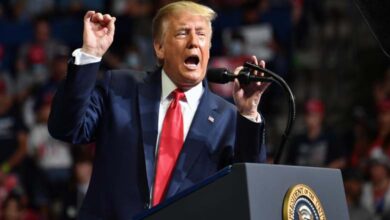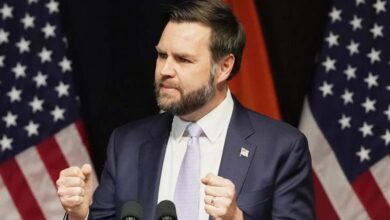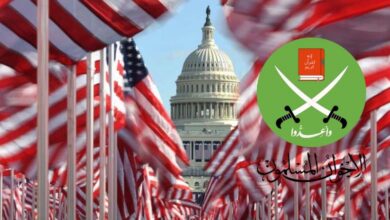American legal experts: Designating the Muslim Brotherhood as a terrorist organization is a step that requires further action
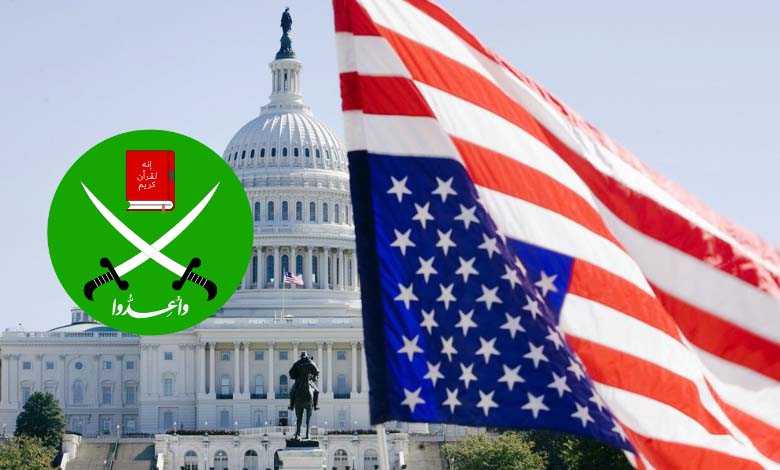
Legal experts in the United States believe that the decision to classify the Muslim Brotherhood as a “terrorist organization” is a measure that must be followed by additional steps.
They consider that the movement is currently experiencing its weakest phase and suffering from disarray, but its danger still lies in its reservoir of extremist ideology.
-
Texas designates the Muslim Brotherhood and CAIR as terrorist organizations: a profound American shift reshaping the domestic landscape of political Islam
-
American Airstrikes on Houthis Expose the Double Standard of Yemen’s Muslim Brotherhood
US President Donald Trump is preparing to deliver a decisive blow to the Muslim Brotherhood. He confirmed in exclusive remarks to Just the News on Sunday that he will designate the group as a foreign terrorist organisation, stating: “This will be done in the strongest and most severe terms… The final documents are being prepared.”
The announcement came a few days after Just the News published an extensive investigation into the activities of the Muslim Brotherhood and the growing concerns within the Trump administration regarding its influence.
Debates are intensifying in the United States and Europe on how to handle the Muslim Brotherhood, as Western institutions review the risks the organization poses to democratic values.
-
Why Did the American and British Intelligence Create the Muslim Brotherhood? Writer Thierry Meyssan Answers
-
Texas Between Security and Rights: Abbott’s Decision Against the Muslim Brotherhood and CAIR Opens a New Battle in the U.S.
Hazem Al-Ghabra, former adviser at the US State Department and member of the Republican Party, said that designating the Muslim Brotherhood as a terrorist organization is “extremely overdue.”
He explained that the organization’s institutional structure has significantly weakened in most parts of the world, while small groups and individuals adhering to its ideology remain active.
He pointed out that several European countries have begun designating the Brotherhood as a “terrorist or extremist-promoting organization,” but that this “is still insufficient” given the greater challenge of confronting the ideology itself rather than the organization alone. He added: “There is a body of radical ideological content that must be addressed, but without compromising the fundamental freedoms on which Western societies are built.”
-
Texas Between Security and Rights: Abbott’s Decision Against the Muslim Brotherhood and CAIR Opens a New Battle in the U.S.
-
Denial of Lineage: The Shadow of a Ban Haunts the Muslim Brotherhood in the U.S. and Europe
According to him, the real issue is not the structural existence of the organization, which has largely dissipated, but the ideology that has caused friction within Western and Arab societies. He clarified that today’s approach must balance security, social values and the protection of freedoms central to democratic systems.
Al-Ghabra said that it is also true that the Muslim Brotherhood was never a fully cohesive institutional organization but rather a broad network of individuals and groups connected by a unified doctrine.
He added that the decentralized nature of the movement “complicates any attempt today to formally link entities or networks within or outside the United States to the Brotherhood,” especially given the differences between legal systems across countries.
-
The Muslim Brotherhood… the Hidden Face Within Western Democracies
-
A colossal budget for the Muslim Brotherhood: how much does the movement spend on its media arms?
He noted that legal frameworks in the United States and Europe are founded on a strict separation of religion and state, and that any restriction must avoid infringing upon lawful religious activity as long as it does not harm society. He added that “the complex question is how to differentiate between constitutionally protected religious activity and political-ideological activity advocating the imposition of Sharia or ideas contradictory to constitutional values.”
Regarding counterterrorism, he affirmed that current laws are “the clearest tool” for addressing groups that provide direct or indirect support to terrorist organisations such as Hamas, adding that debates are growing around the positions of some organisations that justify or overlook destructive acts under the pretext of “freedom of speech.”
-
The Muslim Brotherhood and the specter of designation: a senior U.S. official calls for a decisive step
-
The Muslim Brotherhood Threatens U.S. Security… a Shocking Article in Newsweek
For her part, American attorney Ginger T. Chapman from Maryland, also a Republican, warned that President Donald Trump’s recent efforts to designate the Muslim Brotherhood as a foreign terrorist organization could be hindered for the same reasons that have obstructed similar attempts over the past decade.
Chapman explained that previous congressional bills failed due to a technical hurdle: any legal designation in the United States must define what the Muslim Brotherhood is. She emphasised that the movement is decentralized, transnational, lacks a unified leadership, and includes numerous affiliated groups that must be assessed individually.
-
The Muslim Brotherhood in Europe and Youth: A Long Arm with 31 Branches and a Recruitment Strategy
-
Ayman Soliman: Detained Muslim Brotherhood Figure in the US Uncovered by a Support Campaign
She added that many of these affiliated groups are legally recognized political parties in countries that cooperate closely with the United States, complicating Congress’s efforts to meet the evidentiary requirements of legislative procedures.
The attorney noted that if Trump succeeds in formalizing the designation through an executive order, he may bypass certain legal requirements, but he will face the risk of judicial review overturning the measure.
-
Washington Moves Against the Muslim Brotherhood: New Bill Proposes Terrorist Designation
-
U.S. Congress Moves Closer to Designating Muslim Brotherhood as Terrorist Organization
She indicated that the most effective strategy would be for the president or Congress to focus specifically on threats to national security posed by certain branches affiliated with the Muslim Brotherhood, stating that such an approach would achieve the goal of stopping the funding of the organization and its various networks.
Meanwhile, American legal expert Corbett B. Coburn from Tennessee, also a Republican, stated that this measure would allow the US government to prosecute American citizens for their social media posts, but it would not fundamentally alter the direction of US policy.
-
Shock in British Prisons: Muslim Brotherhood Infiltration… and Weapons Delivered by Drones
-
The Muslim Brotherhood in the U.S. Under Pressure… What’s Happening?
He added that the issue of the Muslim Brotherhood has become so significant that Senator Ted Cruz of Texas believes that promoting the terrorist designation could bolster his prospects as a potential presidential candidate.
He noted that Cruz moved to classify the Brotherhood as a terrorist organization to portray himself as a “tough” leader, while President Trump sought to outshine him by announcing his intention to issue a major executive order.
Texas Republican Governor Greg Abbott designated the Muslim Brotherhood as a “terrorist organization” and a “transnational criminal organization”, a decision that also targeted the Council on American-Islamic Relations (CAIR).
-
The Egyptian Media Syndicate responds to the Muslim Brotherhood’s lies about Egypt’s stance on the Palestinian cause
-
Are the Muslim Brotherhood Politically Sacrificing Al-Joulani to Seize Power? What Is Their Plan in Syria?
The Texas governor’s office justified the decision by stating that the Brotherhood seeks to impose its ideology by force, a reality Europe has observed for years, but to which responses — according to observers — have been limited or symbolic, and considered insufficient to counter the risks of the group’s activities.
The US decision proved more forceful, placing the Brotherhood and its branches under Texas’s strict terrorism and organized crime laws.
-
What is happening inside the Brotherhood prisons in Taiz?
-
Muslim Brotherhood: Scaling Back Activities with Trump’s Arrival to Avoid Terrorist Label


